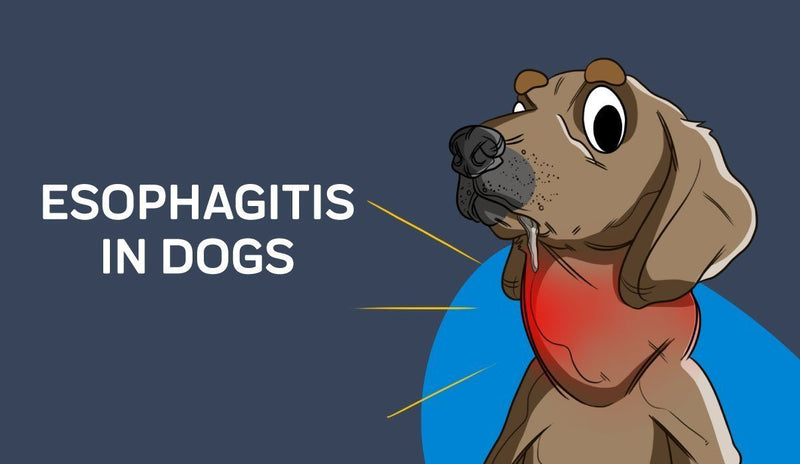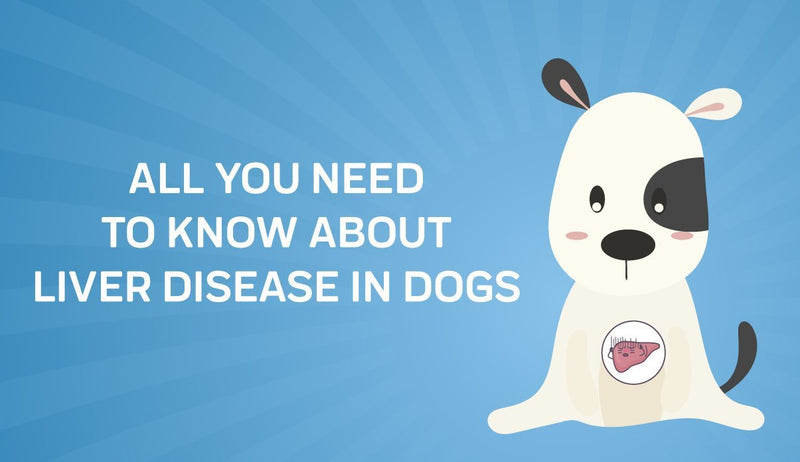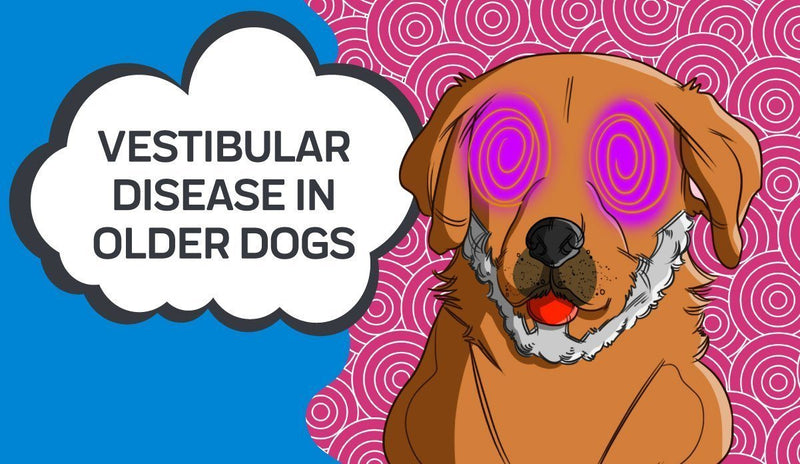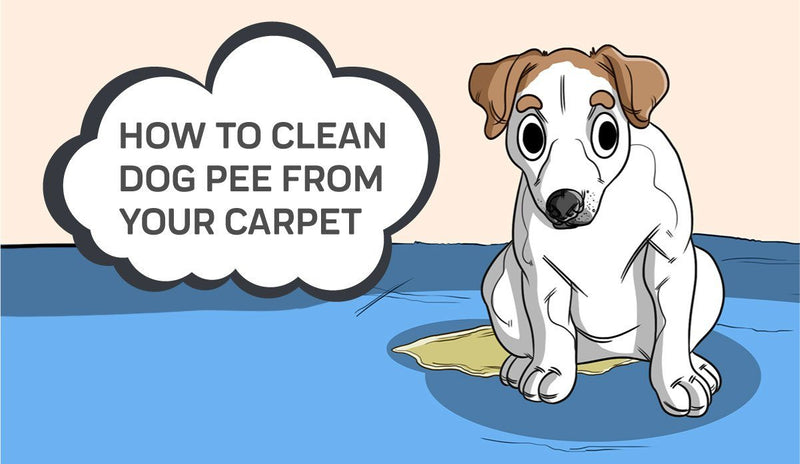If your dog has a lack of appetite or excess saliva or they start excessively gulping or licking, they may have canine esophagitis. Read this post to learn what esophagitis in dogs is, a more thorough knowledge of the symptoms, and how to help your dog if they have it.
What is Esophagitis in Dogs?
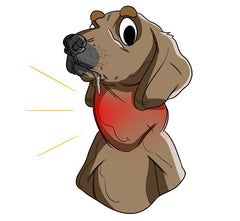
Canine esophagitis is inflammation of the lining of the esophagus. You probably know that's the tube that connects the throat to the stomach. It is a muscular tube lined with a mucous membrane.
The inflammation may be caused by many different problems. The effect of esophagitis is the same, inflammation that causes a certain set of symptoms, but proper diagnosis and treatment of esophagitis will require that the doctor determines the cause.
It is very uncomfortable, downright painful, and it can cause permanent damage to the esophagus that can make them unable to eat or it can lead to aspiration pneumonia.
The most common cause of esophagitis is acid reflux. Yes, your dog can get acid reflux too. The reason you didn't already know your dog has acid reflux is that it isn't talked about very much and many dogs run around with it without their pet parents knowing. Its symptoms can be mild, intermittent, or easily mistaken for something else.
Esophagitis is one of the uncommon examples of a disorder that is not more likely to occur because of age, breed, or sex. Any dog has the same chance of developing it at some point. Thankfully, in most cases, it isn't severe and can be treated successfully and easily.
Symptoms of Dog Esophagitis
Pet owners usually become aware that their dog has esophagitis because they become reluctant or unable to eat or drink. There are other symptoms and there is a lot more going on, but it doesn't exactly get out a megaphone to alert you to its presence.
The symptoms of esophagitis in dogs include:
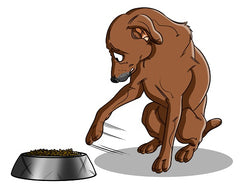
- excessive swallowing or gulping
- difficulty swallowing, perhaps even extending the head when swallowing
- licking their lips or paws in a way not associated with grooming
- excess saliva
- coughing
- vomiting
- regurgitating acid
- pain in the throat, neck, or chest
- decrease in appetite
- weight loss
- moving strangely, like they are uncomfortable
- reluctance to lie down or remain still
- fever
Fever will accompany aspiration pneumonia.
Regurgitation vs Vomiting
While easily confused, these two symptoms are actually two very different things. You should know the difference as regurgitation usually comes from acid while vomiting can come from a wider variety of stomach problems. Of course, vomiting can also be a symptom of acid reflux and esophagitis. That sounds really twisty turny, but being able to tell the difference can help you and the dog's vet better understand what's going on with your dog.
Vomiting is a complex process, usually preceded by nausea and/or an upset stomach. There will be visible belly involvement and what comes out will probably be partially digested.
Regurgitation is essentially burping up acid, food, and sometimes water from the esophagus. There will not be visible belly involvement and what comes out will be stomach acid, undigested food, and sometimes water. There will be no warning prior to the regurgitation in the form of nausea or stool issues.
Causes of Esophagitis in dogs
The most common cause of esophagitis is acid reflux. Puppies are slightly more likely than other dogs to have acid reflux because their esophageal sphincter muscle isn't as developed, allowing stomach acid into the esophagus and damaging it.
Other causes of esophagitis in dogs include:
- chronic vomiting
- ingestion of a chemical or acid
- a foreign body in the esophagus
- a pill or capsule stuck in the esophagus
- a hiatal hernia
- cancer of the esophagus
- incorrectly given anesthesia
- infections
Acid reflux is when the stomach contains too much acid and/or the esophageal sphincter is weakened and acid is able to enter the esophagus.
A hiatal hernia is when part of the stomach enters the chest cavity. This interferes with the normal functioning of the stomach and lungs and can lead to symptoms of esophagitis as well as difficulty breathing. If your dog has this combination of symptoms, be sure to tell your vet so they can be more likely to make the proper diagnosis.
There is a type of esophagitis that is not caused by irritation as we normally picture it. Eosinophilic esophagitis comes from an excessive amount of white blood cells in the mucous lining of the esophagus. It is not very well understood as it has only recently been discovered, but it is believed to be a response to food allergies. The symptoms are similar to that of any other kind of esophagitis. Pondering potential causes and triggers may help point you and the vet toward the idea of this kind of esophagitis.
Dangers of esophagitis in dogs
Esophagitis ranges as a threat from not very serious to life threatening.
The bottom of the threat level begins when something irritates the esophagus, such as stomach acid, a pill, a foreign body, or the effects of a disease at an early stage. The cause can be treated and the esophagus can repair itself or it will take only a little effort to repair the damage.
If the problem continues for a length of time, it can cause damage to the esophagus that may make the dog unwilling to eat or drink or have damaged the esophagus enough that more extensive treatments will be needed to repair the tissue.
The worst cases involve permanent damage to the esophagus, infections, and aspiration pneumonia. Aspiration pneumonia is a very serious situation where food, water, or stomach acid enters the lungs because the dog's throat doesn't function as it should.
Thankfully, the more dangerous forms of esophagitis are fairly rare. This is because the most common reason for a dog to have esophagitis is acid reflux, and you will probably be getting the dog help for that before it gets so bad it could become that serious. But do make sure that you take the dog to the vet to be evaluated as soon as you suspect acid reflux to ensure it doesn't get that bad and also to make sure that the proper treatments are given to the dog.
Diagnosing esophagitis in dogs
If you have acid reflux, think of all the times you're suffering but there are probably no signs that another person could see or would notice. If it's bad enough you may hold your chest or be seen burping up something. We rely on our awareness of our symptoms and our ability to tell others what's going on to let people know we are suffering. Dogs can't do this. That is why dogs may have acid reflux and esophagitis for other reasons for a long time before anyone realizes it.
The symptoms may also be intermittent, making it even more confusing. If you do suspect your dog has acid reflux or esophagitis, make notes of their intermittent symptoms so you can make a record that is easier for you and the vet to evaluate. You may be able to detect a pattern that points to an allergen or other trigger. It may also help you realize that your dog needs treatment sooner than you might would if you rely on memory alone.
When you take the dog to the vet, be sure to tell them as many details as you can imagine being relevant, symptoms, odd behavior you notice, and potential triggering factors. It's better to err on the side of giving too much information than not sharing something that you didn't realize would be helpful.
The vet will observe the dog, perform a routine examination and then run some combination of the following tests depending on what they think is likely causing the problem:
- a complete blood count to check for infections as evidenced by the white blood cell count
- a biochemical profile to check for other diseases that can indirectly lead to esophagitis like kidney and liver disease
- urinalysis
- x-ray
- ultrasound
- barium contrast radiography to detect inflammation
- endoscopy where they run a tube down the dog's throat to see inside the esophagus directly
- a biopsy of the throat lining, if they suspect eosinophilic esophagitis in dogs
Dog esophagitis treatment
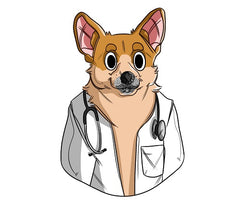
You have to determine the cause of the esophagitis before you can treat it. If the dog has cancer or another disease, then just trying to change their diet or lifestyle isn't going to help. Thinking it's worse than it is and treating for that won't do anything for the dog either, except possibly make them worse, if all they have is acid reflux.
If the dog simply got a foreign body stuck in their throat, the vet can remove that in the office, usually by endoscopy. If it can't be removed during endoscopy, surgery will be necessary.
Most causes of esophagitis in dogs will require at least some of the same treatment, which focuses on reducing stomach acid and strengthening the esophageal sphincter.
Antacids may be prescribed to aggressively reduce stomach acid. We know where your mind is probably going at hearing the word antacid, but don't give your dog human antacids without first consulting your vet. Some of them are very harmful to dogs.
There are also medications that can strengthen the esophageal sphincter, if that is part of the problem and it is bad enough that it can't straighten itself out when there is less stomach acid.
The vet may need to prescribe pain medication, depending on whether the dog can receive pain relief naturally from simply reducing stomach acid.
Diet and lifestyle play an important part in treating any esophagitis caused by stomach acid.
It is best to feed your dog smaller amounts of food at a time more times a day. The fuller their stomach is, the more acid their stomach produces to digest the food.
Low fat, low protein diets rich in carbohydrates also require less stomach acid to digest. Switch them to a high-quality pet food, possibly one designed for dogs with stomach issues, or discuss with your vet diet help for your individual dog's needs in the more serious cases. It is also common for food sensitivities or allergies to trigger esophagitis like beef, chicken, dairy, gluten, preservatives and additives. If you can pinpoint the trigger, you can avoid that food or ingredient. If not, you may need to restrict the diet to avoid likely allergens in dogs until their esophagus heals. Your vet can and must help you plan any diet changes. It is way too common for pet owners to try to help their dogs by modifying their diets and end up causing more problems than they fix. Dog nutrition is just too complicated for a pet owner to navigate alone.
Another lifestyle factor that impacts esophagitis in dogs, particularly when it is caused by acid reflux, is stress. Dogs suffer from stress just like we do. They don't like change and, as pack animals, they don't do well being alone. Illnesses and declining health can cause them stress. Dogs can also be sensitive to the moods of their owners. Sensitive dog breeds are particularly prone to this. There are many reasons a dog can suffer stress. Dog owners can help limit stress by making changes slowly, when possible, and being mindful to maintain as much sameness when making changes as possible. For instance, if a room has to be changed or remodeled or you have to move, keep at least the dog's space as similar to the way it used to be as possible. When changes do occur, make the dog feel more secure by ensuring they have their toys and favorite bedding, things that will give them comfort and a sense of security just like we need. Keep visits from people the dog doesn't know and large groups of people to a minimum, or again, make efforts to provide security for the dog while doing so. You might also need to manage their stress with medications and natural alternatives.
Depending on the cause of the esophagitis, the problem may only occur once and be resolved when the cause is removed, or it may be something that you will always have to use preventative measures to ensure it doesn't recur. Acid reflux is one of the latter. Dogs prone to developing acid reflux will probably always be prone to it, so you will have to make a routine for them that inhibits it.
How CBD Oil Might Help with Dog Esophagitis
CBD oil is gaining popularity for its promises of helping manage many hard-to-treat ailments, including the side effects of medications.
CBD oil might:
- ease nausea
- prevent vomiting
- ease diarrhea
- increase appetite
- alleviate pain
- reduce inflammation
- minimize stress
- give a subtle energy boost
This means CBD oil could ease a lot of the symptoms of esophagitis and prevent some of the causes, like stress or excessive vomiting. It also makes CBD oil a good way to try to eradicate the side effects of medications your dog is prescribed for their esophagitis so they can continue taking the medication.
It is gentle, having virtually no side effects. There is no evidence that a dog can overdose on CBD oil, though too much might cause sedation, diarrhea, or a lack of appetite.
We can't make guarantees because it hasn't been FDA approved yet, due to simply not enough time having passed to have gone through all the tests and trials, but word of mouth says it is sometimes miraculous and the tests that are being performed excite scientists about just how many ailments CBD oil appears to help with. Without harsh side effects and risks.
Using CBD Oil
You've got choices about CBD oil, helping you pick a product that will be effective and enjoyable for your dog.
CBD oil for pets comes in:
- oil tinctures
- extract concentrates
- capsules
- crunchy and soft treats
Treats are popular ways to address chronic stress in pets. They're fun, so dogs eagerly take them. There is no measuring required, so you can just give one or two per day, depending on the directions and your dog's weight and health, to daily prevent them from getting stressed out.
Capsules are similar to treats in that they require no measuring and are easy, but they aren't fun. They're tasteless capsules, with fewer ingredients than treats.
Extract concentrates are just cannabidiol, the active ingredient in CBD oil. This means they're pure, only one ingredient, and that they're the most cost-effective form of CBD oil. You can also vary the dose depending on the dog's changing needs, give to multiple dogs, or find a very specific dose for dogs of an unusual weight or state of health. The downside? They taste exactly like hemp and many dogs don't like that. If your dog does, great. If not, you can give them the concentrate mixed with a strong-tasting food or beverage.
Oil tinctures are cannabidiol mixed with a carrier oil, and often a flavoring, to make it more enjoyable to take than the concentrates. This should be a fairly small number of ingredients. Like concentrates, you can measure the dose exactly to find odd doses and vary doses at need.
Innovations from Innovet
We create scientifically-backed natural and eco-friendly products to help pets and pet owners. If you're searching for dog gulping disorder or esophagitis in dogs, you may want to try our CBD oil tinctures, treats, and capsules to address the esophagitis itself or ease the side effects of a medication the vet prescribes for them to treat it.
If you encounter a pet-related problem that no current traditional or natural means addresses, let us know. We love to innovate for pets.
Sources:
Inflammation of the Esophagus in DogsEsophagitis in Small Animals
Recognizing and treating esophageal disorders in dogs cats
Inflammation of the Esophagus in Dogs
Cannabinoids in the management of difficult to treat pain
Regulation of nausea and vomiting by cannabinoids
Cannabinoids as novel anti-inflammatory drugs
Certificate Of Analysis Records: Innovet Pet Products










